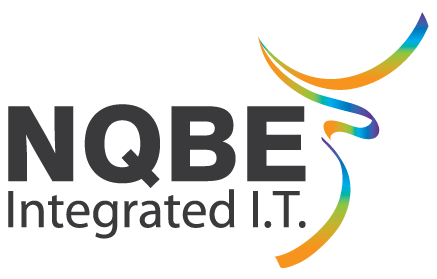How much storage does your business really need?
So, your work computer may not have tonnes of cat videos (well, we hope not!) but you’re somehow still running out of room on that trusty laptop or desktop?
Storage isn’t just about saving space — it’s about running a business efficiently without interruptions. Choosing the right amount of storage is crucial for productivity and performance – but how much is enough?
At NQBE Integrated IT, we work with businesses every day, and we’ve seen firsthand how underestimating storage needs can slow teams down. Here’s a simple guide to help you get it right.
What is device storage?
Device storage refers to the internal or external space available on business equipment like computers, tablets, and smartphones. It’s where apps, documents, emails, photos, and videos are stored. Once full, your device may slow down or stop saving files — affecting your workday.
There are two key types of storage:
Internal Storage: Built-in and generally faster. Most business devices rely on this.
External Storage: Like USB drives or external hard drives. Great for backups or large files.
Common business devices & their storage
Laptops/Desktops: Typically range from 256GB to 1TB. Easily upgradable.
Tablets/Phones: Range from 64GB to 512GB. Used by remote teams and mobile staff.
How much storage does your business need?
Storage needs vary depending on your operations. Here’s a general breakdown:
Basic business use - ideal for: admin roles, reception, basic cloud-based tools:
Storage needed: 64GB to 128GB
Standard office use - ideal for: staff using multiple programs, basic file storage
Storage needed: 256GB to 512GB
Power users or specialist roles - ideal for: designers, engineers, or roles with large software/files
Storage needed: 1TB+
Tips to manage business storage better
Use cloud storage: services like OneDrive, SharePoint, and Google Drive reduce local storage strain.
Archive old files: move unused files to external drives or cloud folders.
Clear cache & temporary files: regular maintenance keeps devices running smoothly.
Standardise devices: having consistent storage across your team helps with support and upgrades.
What eats up business storage?
Video files & graphics projects
Large PDFs or CAD Files
Software with big install files
Email archives with attachments
Running out of storage? Here’s what to do:
Upgrade the internal storage or add an external drive.
Use network-attached storage (NAS) for shared team access.
Transition more files to cloud services.
Or... chat to our team. We can audit your current setup and recommend scalable storage solutions that grow with your business.
NQBE Integrated IT is here to help. From supplying devices to setting up cloud storage and backup systems, we make business IT easier. Contact us today to discuss your setup.
